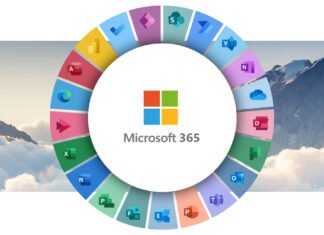When it comes to search engines, Bing and Google are two of the biggest names in the game. Both search engines are widely used, but they have different features, user interfaces, and algorithms that set them apart from each other. In this article, we’ll take a closer look at Bing and Google and compare them in terms of search results, user experience, features, and more.
Introduction: Comparison of Bing and Google Search Engine:
Search engines have become an integral part of our daily lives, helping us find information, products, services, and more. Bing and Google are two of the most popular search engines, each with its own strengths and weaknesses. In this article, we’ll compare these search engines in detail, covering aspects such as search algorithms, user experience, mobile features, privacy, and more. By the end of this article, you’ll have a better understanding of what sets these search engines apart and which one might be the right fit for you.
Brief history of Bing and Google
Google was founded in 1998 by Larry Page and Sergey Brin, while they were Ph.D. students at Stanford University. The search engine quickly became popular due to its efficient search algorithms and clean interface. In contrast, Bing was launched in 2009 by Microsoft as a replacement for its previous search engines, Live Search and MSN Search. Initially, Bing struggled to gain market share, but it has since grown to become the second most popular search engine after Google.
Market share and popularity
According to StatCounter, Google dominates the search engine market with a global market share of over 90%. In comparison, Bing has a market share of around 2%. However, Bing has a significant presence in some countries, such as the United States, where it holds a market share of around 7%. Bing is also the default search engine for some browsers, such as Microsoft Edge and Internet Explorer.
Search algorithms and results
Both Bing and Google use complex search algorithms to rank and display search results. Google’s search algorithm, known as PageRank, analyzes the relevance and authority of web pages to determine their rankings. In contrast, Bing’s algorithm, called RankNet, uses machine learning to evaluate search queries and web pages to produce relevant results. While both search engines aim to provide accurate and relevant results, Google is known for its superior search quality and accuracy.
User experience and interface
Google is famous for its simple and clean interface, with a focus on providing users with the information they need quickly and efficiently. Google’s search results page typically includes a list of links, images, videos, and other types of content, with ads displayed at the top and bottom of the page. In contrast, Bing’s interface is more visually rich, with more images and videos displayed on the search results page. Bing also offers a feature called “Explore pane,” which provides additional information and suggestions related to the search query.
Mobile experience and features
Both Bing and Google offer mobile apps and mobile-friendly websites that allow users to access search results on their smartphones and tablets. Google’s mobile app and website are known for their fast loading times, intuitive interface, and voice search capabilities. Bing’s mobile app and website are also user-friendly, with features such as image search, local search, and news feed.
Voice search and assistants
Voice search is becoming increasingly popular, and both Bing and Google offer AI voice search capabilities. Google’s voice search, powered by Google Assistant, is known for its accuracy and natural language processing. Bing’s voice search, powered by Cortana, is also accurate and can perform tasks such as setting reminders and sending messages. However, Google Assistant is more widely used and integrated with more devices and services than Cortana.
Privacy and security
Privacy and security are important considerations when it comes to using search engines. Both Bing and Google have privacy policies that outline how they collect and use user data. Google has faced criticism in the past for its data collection practices, while Microsoft has been praised for its commitment to privacy. Bing also offers an encrypted search feature called “Bing SSL” that allows users to search anonymously.
Social media integration
Social media is an important source of information for many people, and both Bing and Google have integrated social media results into their search results pages. Google displays social media posts from Google+, while Bing displays posts from Facebook, Twitter, and LinkedIn. However, Google has recently announced the shutdown of Google+ and plans to integrate other social media platforms into its search results.
Advertising and monetization
Both Bing and Google generate revenue through advertising. Google’s AdWords platform is the most popular online advertising platform, allowing businesses to display ads on Google’s search results pages and other websites. Bing Ads, Microsoft’s advertising platform, offers similar features to AdWords but with a smaller audience. However, Bing Ads is often cheaper than AdWords and can be a more cost-effective option for some businesses.
Language support
Both Bing and Google support multiple languages, with Google supporting over 100 languages and Bing supporting over 50. Google’s language support is more extensive, with features such as Google Translate and voice search in multiple languages. However, Bing’s language support is also comprehensive and includes languages such as Arabic, Chinese, and Russian.
Accessibility and inclusivity
Search engines should be accessible to everyone, regardless of their abilities or disabilities. Both Bing and Google are committed to accessibility and have features such as keyboard shortcuts, screen readers, and high-contrast modes that make their search engines easier to use for people with disabilities. Additionally, both search engines offer multilingual support and tools to help people with language barriers.
Extra features and tools
Both Bing and Google offer a range of extra features and tools that make their search engines more useful and informative. Google offers tools such as Google Maps, Google Flights, and Google News, while Bing offers features such as Bing Maps, Bing Rewards, and Bing Visual Search. Both search engines also offer integrations with third-party apps and services.
Pros and cons of Bing and Google
Both Bing and Google have their pros and cons. Google is known for its accuracy, extensive search results, and user-friendly interface. However, it has faced criticism for its data collection practices and can be overwhelming for some users. Bing, on the other hand, offers a visually appealing interface, a good mobile experience, and lower advertising costs. However, it has a smaller user base and can sometimes produce less relevant search results. Moreover you can preform search engine optimization for your content to get ranked on both search engines.
Conclusion:
In conclusion, Bing and Google are both popular search engines that offer unique features and advantages. Google is the dominant player in the search engine market, with superior search quality and a user-friendly interface. Bing, on the other hand, has a visually rich interface, lower advertising costs, and a good mobile experience. Ultimately, the choice between Bing and Google comes down to personal preferences and needs.





